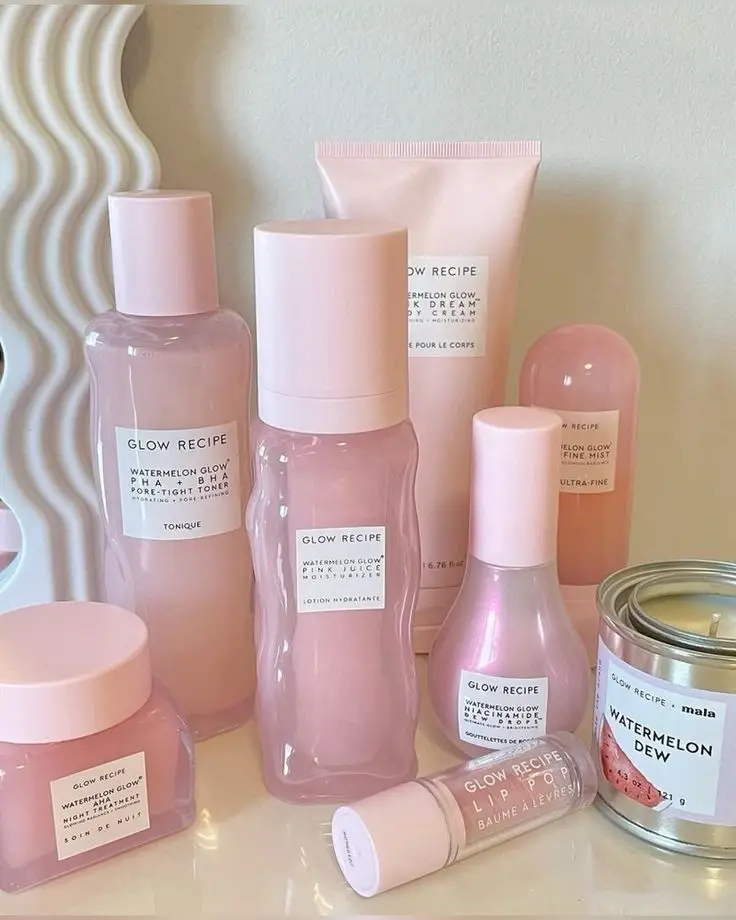Taking care of your skin at night is essential for maintaining a healthy and glowing complexion. Your nighttime skincare routine allows your skin to repair and rejuvenate while you sleep, making it one of the most important self-care practices you can establish.
A proper nighttime skincare routine can transform your skin by addressing specific concerns and maximizing the effectiveness of your products. By following expert-recommended steps before bed, you’re giving your skin the best chance to heal from daily environmental stressors and setting yourself up for that coveted morning glow. Let’s explore the top tips that dermatologists recommend for optimal nighttime skincare.
1) Start with oil-based cleansers for effective makeup removal
Oil-based cleansers are a game-changer for your nighttime skincare routine. They excel at dissolving makeup, sunscreen, and excess sebum that accumulates throughout the day. Unlike harsh cleansers, oil cleansers work with your skin’s natural oils rather than stripping them away.
To use an oil cleanser, simply apply 1-2 teaspoons to your dry face. Gently massage it in circular motions for about 30 seconds, focusing on areas with makeup or sunscreen. You’ll notice makeup melting away almost immediately.
For dry skin, consider a mixture of olive oil and castor oil as a natural option. If you have oily skin, lighter oils or commercial cleansing oils specifically formulated for your skin type work best.
After massaging, rinse with warm water or wipe away with a soft cloth. Many people follow with a gentle second cleanse using a water-based cleanser for a thorough clean.
Oil cleansing is ideal for nighttime routines when you need to remove daily buildup. Your skin will feel clean but not tight or stripped – the perfect canvas for the rest of your nighttime skincare products.


2) Use a gentle cleanser to avoid irritation
Cleansing your face at night is essential to remove makeup, dirt, and pollutants that accumulate throughout the day. Choose a gentle cleanser with a neutral pH that won’t strip your skin of its natural oils or disrupt your skin’s protective barrier.
The American Academy of Dermatology specifically recommends fragrance-free cleansers for sensitive skin types. Many fragrance chemicals can trigger irritation and redness, especially if your skin is already sensitive or reactive.
Avoid scrubbing your face too hard while cleansing. Gentle motions with your fingertips are enough to clean your skin without causing unnecessary friction or irritation.
If you have oily or combination skin or wear makeup regularly, consider starting with micellar water on a soft cotton pad before using your regular cleanser. This two-step approach ensures all makeup and impurities are thoroughly removed.
If you notice your skin feels tight, dry, or irritated after cleansing, your current product might be too harsh. Look for cleansers labeled as “gentle,” “hydrating,” or “for sensitive skin” to find options that clean effectively without causing discomfort.


3) Apply hyaluronic acid serum for moisture retention
Hyaluronic acid is a powerful moisture-binding ingredient that helps your skin retain hydration throughout the night. This superstar ingredient can hold up to 1000 times its weight in water, making it perfect for keeping your skin plump and hydrated.
After cleansing, apply hyaluronic acid serum while your skin is still damp. This timing is crucial because the serum works by drawing moisture into your skin.
Apply just a couple of drops by pressing gently into your face with the palms of your hands. Don’t rub too harshly as this can irritate your skin and reduce effectiveness.
Always follow your hyaluronic acid serum with a moisturizer. This step is essential because the moisturizer will seal in the hydration that the hyaluronic acid has drawn to your skin.
For best results, use hyaluronic acid after any targeted treatments in your routine but before heavier creams. This layering approach allows each product to work effectively.
You’ll wake up with skin that feels more hydrated, plump, and ready to face the day. Consistent use can help improve your skin’s moisture barrier over time.


4) Incorporate targeted treatments for specific concerns
The nighttime is the perfect opportunity to address your specific skin concerns with targeted treatments. These can range from serums to spot treatments that work while you sleep to improve your skin’s appearance and health.
Look for products containing active ingredients designed to address your particular needs. For instance, if you struggle with acne, consider treatments with salicylic acid or benzoyl peroxide. For fine lines and wrinkles, retinol or peptide-based products can be effective options.
Don’t forget to include a weekly treatment mask in your routine. Using a mask once or twice a week can provide intensive care for your specific concerns, whether that’s hydration, brightening, or clarifying.
Remember to apply your treatments after cleansing and toning but before moisturizing. This allows the active ingredients to penetrate your skin more effectively without barriers.
Be patient with your targeted treatments. Most require consistent use over several weeks before you’ll see noticeable results. Keep track of how your skin responds and adjust accordingly.


5) Follow with a nourishing moisturizer suitable for your skin type
After applying serums, your skin is ready for a moisturizer that will lock in all the goodness. Moisturizers create a protective barrier that prevents water loss while you sleep.
For oily skin, look for lightweight, non-comedogenic formulas labeled “oil-free” or “gel-based.” These won’t clog your pores but will still provide necessary hydration without making your skin feel greasy.
If you have dry skin, richer creams with ingredients like hyaluronic acid, ceramides, or shea butter will be your best friends. These ingredients help restore your skin’s moisture barrier overnight.
Combination skin benefits from using different moisturizers on different areas. You might apply a richer formula to dry areas and a lighter one to oily zones.
Sensitive skin types should seek fragrance-free options with soothing ingredients like aloe vera or chamomile. Always patch test new products before applying them to your entire face.
Remember that nighttime is when you can use slightly heavier moisturizers than during the day. Your skin naturally loses more water while you sleep, so evening formulations are often more nourishing.


6) Consider eye creams for delicate under-eye skin
The skin around your eyes is thinner and more delicate than the rest of your face, requiring special attention in your nighttime routine. This area is often the first to show signs of aging, fatigue, and stress, making targeted treatments essential.
Your skin naturally repairs itself while you sleep, so applying eye cream before bed maximizes its effectiveness. Look for ingredients like caffeine to reduce puffiness, retinol for fine lines, and hyaluronic acid for hydration.
When applying eye cream, remember that less is more. A pea-sized amount is sufficient for both eyes. Use your ring finger (which naturally applies the least pressure) to gently pat the product around your eye area.
For those with mature or particularly dry skin, choose richer formulations specifically designed for nighttime use. These creams provide intensive moisture and nourishment while you sleep.
Many brands offer specialized eye treatments, from Mary Kay’s fragrance-free depuffing option to intensive anti-aging formulas. Adding this simple step to your evening routine can make a noticeable difference in how refreshed your eyes look each morning.


Understanding Your Skin Type
Knowing your skin type is the foundation of an effective nighttime skincare routine. Your unique skin characteristics determine which products will work best for you and help address specific concerns while you sleep.
Identifying Your Skin Type
The most common skin types are normal, dry, oily, combination, and sensitive. To determine yours, try this simple test: wash your face with a gentle cleanser, then wait about an hour without applying any products.
If your skin feels tight and looks flaky, you likely have dry skin. Shine across your entire face indicates oily skin. If you notice shine only in your T-zone (forehead, nose, and chin) while your cheeks feel normal or dry, you have combination skin.
Normal skin feels balanced – neither too oily nor too dry. Sensitive skin might react with redness, itching, or burning to certain products.
Your skin type can also change with seasons, hormones, and age, so it’s worth reassessing periodically.
Choosing Products Based on Skin Type
For dry skin, look for hydrating ingredients like hyaluronic acid, glycerin, and nourishing oils. Your nighttime routine should focus on moisture retention with rich creams and overnight masks.
Oily skin benefits from lightweight, non-comedogenic formulas. Include products with salicylic acid or niacinamide to control oil production while you sleep. Avoid heavy, occlusive products that might trigger breakouts.
Combination skin requires a balanced approach. You might need to apply different products to different areas of your face or find middle-ground formulations that address both concerns.
Sensitive skin needs gentle, fragrance-free products with soothing ingredients like aloe vera, chamomile, or centella asiatica. Always patch test new products before applying them to your entire face.
Importance of Nighttime Skincare
Your nighttime skincare routine is crucial for maintaining healthy, radiant skin. While you sleep, your skin undergoes essential recovery processes that are vital for its overall health and appearance.
Skin’s Regenerative Process at Night
During sleep, your skin cells regenerate at a faster rate than during daytime hours. This cellular turnover helps repair damage from UV exposure, pollution, and other environmental stressors you encounter throughout the day.
Your skin’s blood flow increases at night, allowing for better absorption of active ingredients in your skincare products. This is why applying treatments before bed can be more effective than using them during the day.
The skin also loses more water at night (called transepidermal water loss), making evening moisturization especially important. Without proper hydration, your skin can appear dull and develop fine lines more quickly.
Additionally, your body produces growth hormones during sleep that help repair damaged cells and create new ones. This natural process works best when your skin is clean and nourished.
Benefits of a Consistent Routine
A regular nighttime skincare routine helps prevent premature aging by supporting your skin’s natural renewal process. When you cleanse away the day’s buildup of dirt, oil, and makeup, you give your skin a fresh canvas for recovery.
Consistency is key – your skin responds best to regular care rather than occasional intensive treatments. Even a simple routine of cleansing and moisturizing can make a significant difference in your skin’s health over time.
Using products designed for nighttime use can target specific concerns while you sleep. Ingredients like retinol, peptides, and certain acids work best at night when your skin isn’t exposed to sunlight that could reduce their effectiveness.
Your nighttime routine also creates a calming ritual that can improve sleep quality. The act of caring for yourself signals to your body that it’s time to rest, potentially enhancing your overall well-being.





